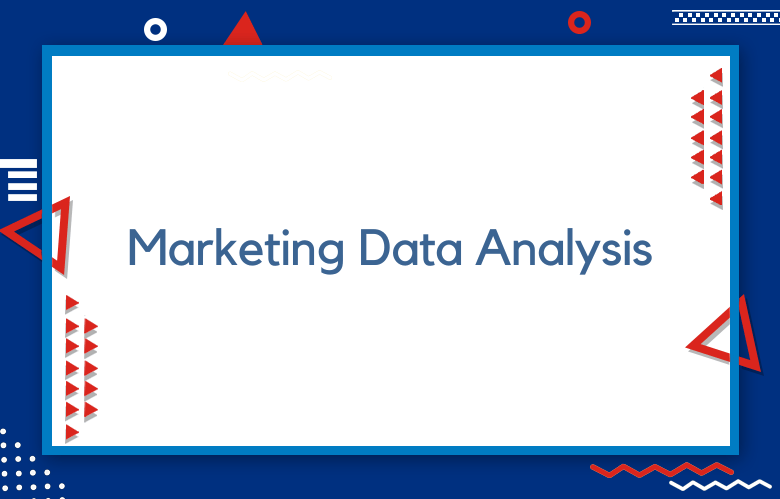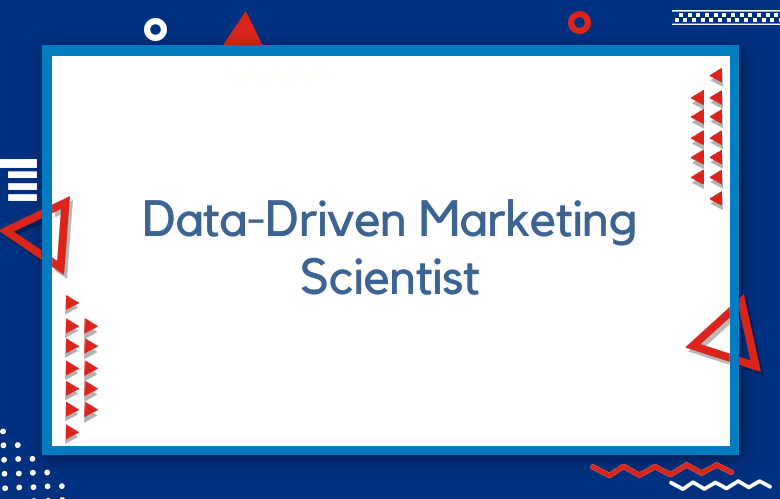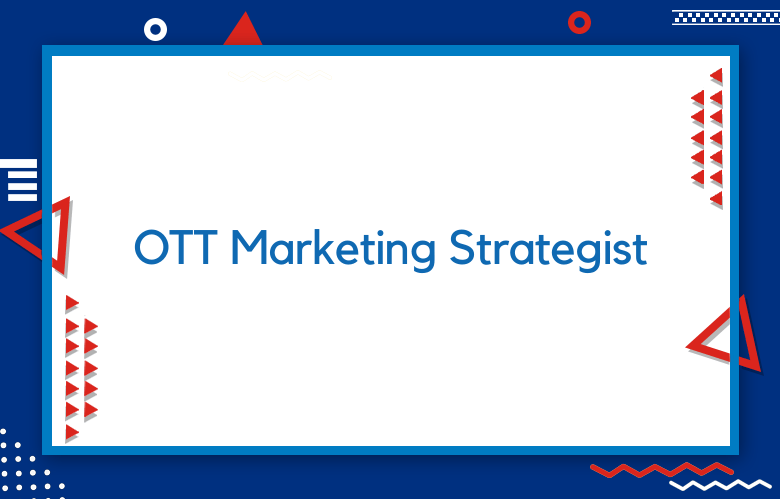Marketing Data Analysis using AI and ML

Data is king in business, and marketing is no exception. However, as marketing data becomes more complex and sophisticated, companies need help to extract meaningful insights from it and turn them into actionable insights.
Fortunately, artificial intelligence (AI) and machine learning (ML) advancements are revolutionizing how we analyze marketing data.
We will explore the various ways AI and ML can be used in marketing data analysis, including predictive modeling, customer segmentation, and sentiment analysis.
What is Marketing Data Analysis using AI and ML?
Marketing Data Analytics uses machine learning and artificial intelligence techniques to analyze and optimize marketing performance data.
It involves collecting and processing large data sets from multiple sources to gain valuable insights into customer behavior, identify patterns and trends for customer segmentation, and real-time market analysis.
This allows businesses to create more effective marketing strategies, improve customer engagement, and increase their chance of success.
How does Marketing Data Analysis using AI and ML work?
Marketing Data analytics using AI and ML collects data from various sources such as social media, web traffic, sales, and customer interactions.
The next step is to process the collected data and use algorithms to identify patterns, correlations, and market trends.
This information can create actionable insights, leading to more optimized marketing strategies, better customer engagement, and increased revenue.
Applications of Marketing Data Analysis using AI and ML
AI and ML are the driving forces behind marketing data analysis. They provide many benefits to businesses that adopt them, including customer personalization, predictive modeling, real-time decision-making, and more.
Marketing data analysis helps businesses identify their most valuable customers, personalize interactions, forecast customer behavior and purchase patterns, and optimize pricing strategies to increase revenue.
Data analytics can help businesses identify revenue-generating opportunities and improve their understanding of markets.
Why AI and ML are the Future of Marketing Data Analysis?
Data analysis has become a crucial part of marketing success. The ability to gather and interpret data has given marketers insights into consumer behavior that were once impossible to access.
With the overwhelming amount of information available today, it can be not easy to sift through and find valuable insights worth acting upon. That’s where AI and ML come in. We’ll dive into why AI and ML are the future of marketing data analysis.
The Power of AI and ML in Data Analysis
AI and ML can process and analyze data at a speed and volume that surpasses human capabilities.
These technologies can identify patterns in data that would be difficult for humans to spot and analyze key insights that reveal precisely how consumers feel about a brand.
With the sheer volume of data that marketers gather, relying on AI and ML to analyze it is the only way to utilize all the data effectively.
The Power of Marketing Data Analysis Using AI and ML
Gone are the days when businesses had to rely on guesswork and assumptions for their marketing strategies. Now, with the help of artificial intelligence (AI) and machine learning (ML), marketing data analysis has never been more powerful.
By harnessing the predictive power of AI and ML, businesses can better understand their target audience, create targeted campaigns, and improve their overall marketing ROI. W we’ll explore how AI and ML can help your business make more informed marketing decisions.
Maximizing Your Marketing Strategies with AI and ML Data Analysis
In the fast-evolving world of digital marketing, proper data analysis is necessary for businesses to stay competitive and ahead of the curve.
Without proper analysis, the sheer volume of data generated by marketing campaigns can leave even the most seasoned professionals wondering where to start.
Fortunately, there’s a solution: Artificial Intelligence (AI) and Machine Learning (ML).
Companies that use AI and ML to analyze their marketing data discover new insights and make data-driven decisions that significantly improve their marketing campaigns and bottom line. Keep reading to discover how these technologies are changing the face of modern marketing.
Understanding Marketing Data Analysis through AI and ML
The rise of Artificial Intelligence (AI) and Machine Learning (ML) has transformed how businesses function today. AI and ML technology drives data analytics, marketing automation, customer service, and more.
For businesses to thrive in this digital era, they must rely on traditional marketing strategies and leverage the potential of marketing data analysis through AI and ML. I will delve deeper into understanding what marketing data analysis through AI and ML entails.
Marketing data analysis leverages insights to make informed decisions and drive better marketing results. It involves collecting, analyzing, and interpreting data to improve marketing strategies and tactics.
Marketing data analysis allows businesses to understand their customer’s preferences and behaviors better and thus tailor their marketing campaigns to meet their needs.
Benefits of Marketing Data Analysis using AI and ML
Predictive modeling
Predictive modeling uses ML algorithms to analyze historical data to identify patterns and predict future outcomes. This approach can be used in marketing to forecast sales, customer churn, and lifetime value, among other things.
By leveraging predictive modeling, marketers can anticipate and respond to customer needs before they occur, leading to enhanced customer satisfaction and increased revenue.
Customer segmentation
Marketing to diverse customers with varying needs can be pretty challenging. However, with AI-powered customer segmentation, marketers can group customers by their interests, behaviors, and demographic characteristics, allowing for more personalized and targeted marketing campaigns.
This approach can help businesses to tailor their products and services better to meet the specific needs of each segment, driving increased customer engagement and loyalty.
Sentiment analysis
Understanding customer sentiment is essential for any successful marketing campaign.
By leveraging ML algorithms, companies can analyze customer feedback from social media, email, and other channels to gain insight into customer sentiment and identify trends.
This approach can help businesses to identify potential problems before they escalate into more significant issues, preventing damage to their brand reputation.
Behavior analysis
ML can also analyze customer behavior, such as website visits, clicks, and purchases. By analyzing this data, companies can uncover patterns and trends, identify areas for improvement, and optimize their content and marketing campaigns for increased engagement and conversion rates.
Campaign optimization
ML can optimize marketing campaigns based on data-driven insights. By leveraging ML algorithms, businesses can analyze campaign performance, identify areas for improvement, and make data-driven decisions to optimize their campaigns for maximum results.
Conclusion
In today’s data-driven world, AI and ML are transforming how we analyze marketing data.
By leveraging these powerful tools, businesses can gain actionable insights and make data-driven decisions that lead to enhanced customer engagement, increased revenue, and improved brand reputation.
Whether you’re looking to optimize your marketing campaigns, improve customer segmentation, or enhance your understanding of customer sentiment, AI and ML can revolutionize marketing data analysis.
So why wait? Get started today and unlock the full potential of your marketing data with the power of AI and ML.
Call: +91 9848321284
Email: [email protected]



